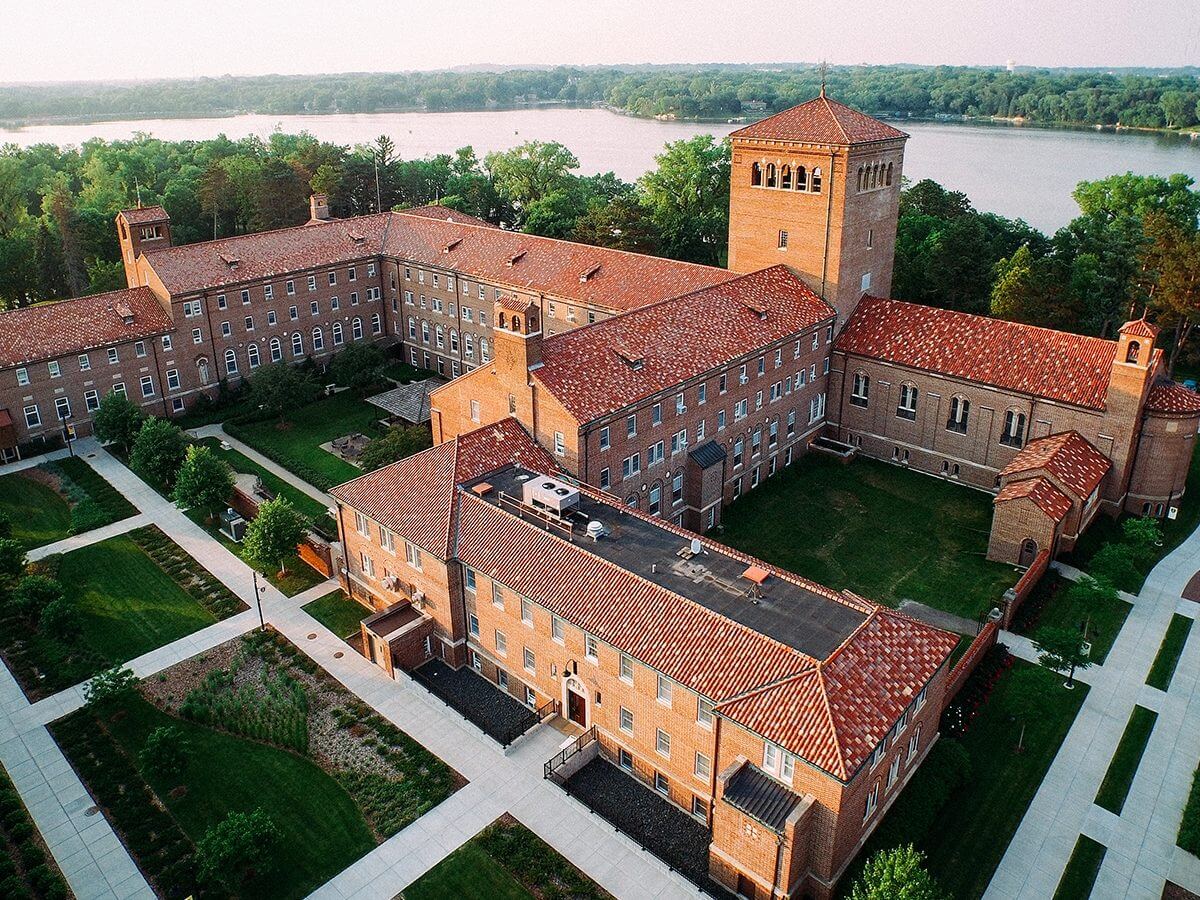Purpose of the Core Curriculum
The Core Curriculum at the University of Northwestern–St. Paul provides a structure through which the educational philosophy of the institution is achieved. Grounding all intellectual inquiry in the truth of the Bible and God as the Ultimate Reality of the universe requires exploration of the following three critical questions, all of which find their answer in Christ.
- What is real? Christ is the foundation of all reality (Col. 1)
- What can we know? Christ is the source of all knowledge (Col. 2)
- How should we live? Christ is our model (Phil. 2)
The Core Curriculum seeks to support students in developing a deep understanding of these truths and in applying them in their lives and within a variety of disciplinary contexts.
The transformative process of “becoming like Christ for God’s glory” is at the center of all intellectual inquiry at Northwestern. The Core Curriculum provides a foundation for this inquiry which is later expanded within the specific academic discipline.
What does it mean to “Become like Christ for God’s Glory”?
The Scriptures teach us that the ultimate purpose of all things is the glory of God. Whether in small things like eating or drinking (I Cor. 10:31), or important things like doing good works and living godly lives in our bodies (Matt 5:16, I Cor. 6:20), our adoption through Jesus Christ has the glory of God as its goal (Eph. 1:12). For this reason, near the end of his ministry Jesus prayed, “Father, glorify your name!” (John 12:28) All creation exists to bring glory to God – even nature itself (Ps. 19:1) – and as His children we are called to reflect that glory. But what is the glory of God? When Moses encountered God, he asked to see God’s glory. God’s response was that He would show Moses His goodness, proclaim His sacred Name, and have grace and compassion on whomever He wills (Ex. 33:18-19). Thus, the glory of God is the manifestation of His divine attributes, especially His sovereignty, goodness, grace, and compassion. Furthermore, Jesus told His disciples that the Father is glorified when we bear fruit (John 15:8).
How is it that we are able to bear fruit that leads to the glory of God? We are not able to do this on our own, because apart from Christ we are dead in our trespasses and sins (Eph. 2:1). For this reason, the Gospel calls all people to turn to God in repentance and believe in the Lord Jesus Christ (Acts 20:21), which leads to forgiveness and sanctification (Acts 26:18). After entering into this new life in Christ, we must be filled with the Holy Spirit to develop the Christian virtues known as the fruit of the Spirit (Eph. 5:18 and Gal. 5:22-23). The work of the Holy Spirit and the word of Christ (Col. 3:16) then result in our transformation into the image and likeness of Christ (Rom. 8:29; II Cor. 3:18; Eph. 4:13). Thus, to give God glory is to make the invisible God visible by manifesting the life of Christ through the fruit of the Holy Spirit.
How is this purpose achieved through the Core Curriculum?
A conceptual framework was designed by the Steering Committee which is grounded in the missional documents of the institution. The framework identifies the outcomes of the curriculum and requires that all Core Curriculum courses focus on developing one or more of the key questions. In addition, academic disciplines align their programs to this conceptual framework, thus ensuring that the entire curriculum contributes to the purpose of “Becoming Like Christ for God’s Glory.”
Structure of the Core Curriculum
The structure of the Core Curriculum allows all students to engage in the following areas of learning.
- Foundational Skills: Coursework is designed to provide foundational skills in effective oral and written communication and information literacy, recognizing that these are essential skills across academic disciplines.
- Biblical Thinking & Living: Students are provided with opportunities to study Scripture in depth, to develop interpretive skills, and to wrestle with difficult theological and philosophical questions that will allow them to articulate a Christian perspective on personal, academic, religious, and social issues that is grounded in biblical truth. Transformation into the image of Christ is at the center of this study and allows students to confidently step into the challenging conversations that we all encounter in a secular society.
- Leadership & Professionalism: Students complete a two-course sequence in leadership development that examines the integration of personal spiritual formation, biblically based leadership, professional skills, and cultural and global engagement. A focus on individual strengths and motivations and their impact on calling and career is included.
- Cultural & Global Engagement: Students develop an understanding and appreciation of their own and others’ historical, societal, and cultural perspectives. Skills in intercultural competence, thoughtful civic participation, and responsible global engagement with a biblical mindset are emphasized. Students are encouraged to select experiences such as cultural and global engagement courses, modern world languages, study-abroad experiences, or cross-cultural opportunities which will contribute to their own personal growth related to cultural and global engagement.
- Broad Exposure to Academic Disciplines: Recognizing that professionals need skills from a variety of academic fields, students are given the opportunity to explore a broad range of courses from different disciplines. These include academic areas such as the humanities, the arts, social sciences, mathematics, and natural sciences.




